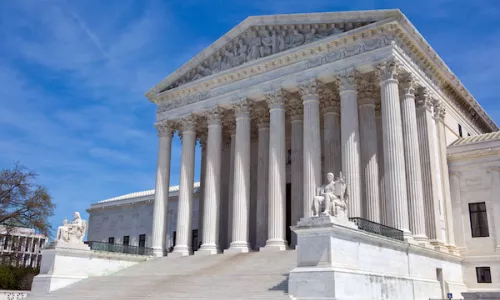First Amendment Supreme Court Cases
Explore Supreme Court opinions, overview essays, and other resources to learn how First Amendment law has developed over the years. Whether you’re an educator looking for classroom resources, a college student trying to understand your First Amendment freedoms on campus, or generally interested in your rights, our library and FIRE’s resources are here to help.

Case Archive
930Cases
Year in Review: The Supreme Court in 2024
Last year, the Supreme Court redefined the rules by which Americans interact online. Here are some highlights from FIRE's Newsdesk.

In a blockbuster First Amendment term, the Supreme Court got the big stuff right
News
Here are five free speech takeaways from the Supreme Court’s historic 2023-2024 term.

Supreme Court must halt unprecedented TikTok ban to allow review, FIRE argues in new brief to high court
News
The law imposes a prior restraint, and restricts speech based on both its content and viewpoint.

Supreme Court Justices raise First Amendment concerns in NetChoice oral argument
News
The Supreme Court held oral arguments for two consequential cases surrounding the First Amendment rights of social media platforms.

The 8 First Amendment cases the Supreme Court will decide this term
News
The Supreme Court is poised to decide cases determining online speech rights and when government ‘jawboning’ crosses a constitutional line.
Case Search
Explore First Amendment court cases and more.